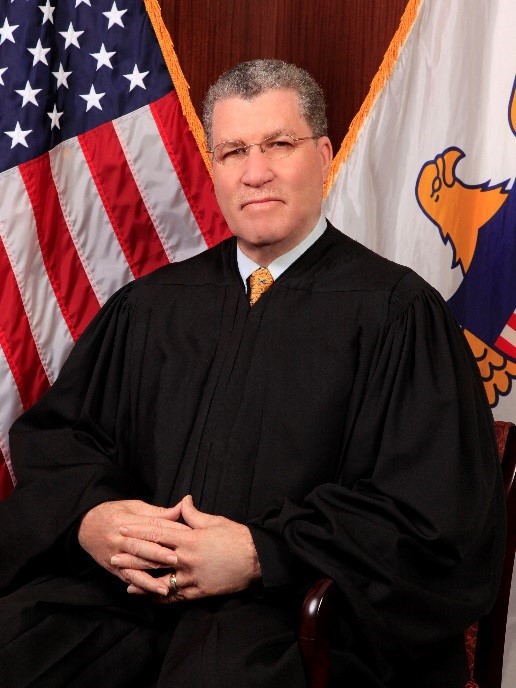
A jurisdictional dispute between the Virgin Islands Bar Association and some of its members has ended with a legal victory for the Bar and a claim of a moral victory by the complainants.
Representatives for both sides told the Source this week that they believe the matter is settled.
At issue was the Bar’s implementation of new rules governing requirements for continuing legal education (known as CLE) for its members. While the rules apply to all active members of the Bar, their impact could weigh more heavily on those who do not live in the territory.
The case was triggered in July after the Bar sent out notices to many members saying they were found to be delinquent in meeting CLE requirements and were in danger of being fined $300 and/or suspended.
Four members of the Bar, Vincent A. Fuller, Walter G. Latimer, Renee D. Dowling, and Matthew D. Seymour, petitioned the V.I. Supreme Court to prevent the Bar from enforcing the new rules and to direct it to return any money it had received in fines.
Peter Lynch, who represented the petitioners, suggested the action could have affected several hundred members. Alisha Udhwani, president of the Bar, said delinquency notices were actually sent to about 130.
In any case, Udhwani said, the notices were not the final say; attorneys could dispute or appeal the ruling.
“No one was facing suspension,” she said. And no one was actually fined. While some people did send in payments for fines, she said, “they will be getting a refund.”
Money was not the only issue. The four attorneys who petitioned the court argued that the Bar had formulated the rules without input from the membership and that it had not given members proper notice of the change, a situation exacerbated by a change-over in the Bar’s website at the time the new rules were implemented.
Since 2007 the mandatory requirements (known as Supreme Court Rule 208) were 12 hours of continuing legal education each year, including at least two credit hours of “Ethics and Professionalism Programming.” Members of the Bar were required to show proof of compliance to the Bar.
In 2019, the Bar proposed an amendment to Rule 208 that changed the requirement to 24 credits over two years and specified that at least four hours be in the area of “Virgin Islands Law Programming,” two hours in “Technology Programming,” and one in “Mental Health and Substance Use Disorder Programming.”
In their filing, the petitioners said, “a significant portion of the membership find the enforcement efforts of the VIBA to be unjustified, unauthorized, heavy-handed, oppressive and harmful to the members.” They complained that “VIBA has set itself up as the exclusive or near-exclusive vendor of mandatory VI Law CLE” and that “VIBA has established for itself a monopoly and fixed prices for VI Law CLE.”
They also said the amended rule was being applied retroactively since members had not received notice of it until it was already in effect.
In a ruling Friday, the court struck down the salient parts of the petitioners’ complaint.
It is the court, not the Bar, that actually amended Rule 208, the justices said. In fact, the court made a slight change to the Bar’s recommendation, dividing the membership into two groups alphabetically and staggering their reporting deadlines. The court did publish the proposed changes and invited comments on them (receiving one comment) before they were implemented.
As for the complaint that the membership was not consulted before the Bar asked the court to amend Rule 208, the court said that, like bar associations in other jurisdictions, the Virgin Islands Bar “is not a direct democracy, but rather acts through its elected Board of Governors which is authorized to ‘direct through the President the general management of the affairs of the Bar.'”
The justices did agree with the petitioners that the Bar was at fault for a delay in completing its review (or audit) of CLE filings and that, having missed the deadline for sending out the delinquency notices, the Bar should rescind those notices.
While the court filing focused on the process of the rule change, Lynch said there is also some concern about the substance of the new requirements.
“They’re certainly not standard, and it puts the Virgin Islands out of step with other jurisdictions,” he said. “It has made it very burdensome, particularly for those attorneys who happen to be on the mainland and licensed in the Virgin Islands.”
The V.I. Bar automatically accepts CLE credits from only 12 of the 50 states, Lynch said. That makes it more difficult for an attorney to attend seminars, workshops, classes, or other events that qualify for credits.
Udhwani said, “There has to be reciprocity” between a state and the Virgin Islands in order to automatically accept continuing law education credits from that state. However, members of the V.I. Bar can and do pay a small fee and ask the Bar to review such CLEs.
“I don’t know of an instance when it was not accepted,” she said. The V.I. Bar also offers CLE credits via online venues, including some for free.
Noting that the Bar has agreed to rescind its notices and to return any fines that it received, both Udhwani and Lynch said they view the complaint as resolved.


